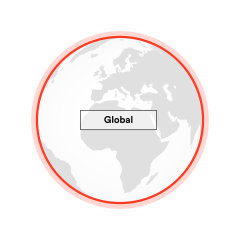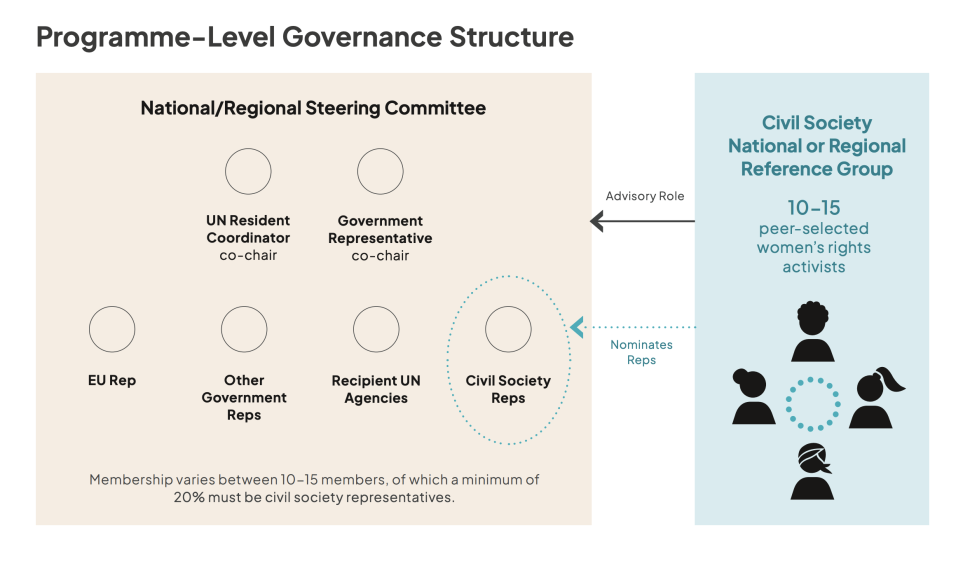Build multi-stakeholder partnerships

Build multi-stakeholder partnerships
Case Studies

In 2023, Spotlight Initiative Secretariat, in collaboration with regional and country programmes, hosted a SHINE online discussion on the theme ‘Sustaining the impact of the Spotlight Initiative: essential services for survivors of violence’. This discussion was open to Spotlight Initiative programmes and partners, including the United Nations, civil society, governments, European Union delegations, and other stakeholders engaged in ending violence against women and girls (EVAWG) efforts to exchange approaches and tools related to the maintenance of essential services.
A key highlight from the discussion was recognition of the importance of adopting a multi-stakeholder approach to sustain essential services. Engaging all segments of society, all service provision sectors, and exploring innovative partnerships, such as with the private sector, helps to create demand for services and to ensure their sustainability. CSOs play a critical role in sustaining essential services through their contribution to fostering accountability, monitoring the service quality, strengthening capacity building, and co-designing essential services policy documents and standardised operating procedures.



Spotlight Initiative programmes strengthened existing, or created new, institutional mechanisms to foster coherent multi-sectoral approaches to preventing and responding to violence against women and girls. Nearly half of Spotlight Initiative programmes – including in Afghanistan, Liberia, Malawi, Nigeria, Timor-Leste, Vanuatu and Zimbabwe – either established or strengthened multi-stakeholder coordination mechanisms. In each case, coordination was established at the highest level, and the process included identifying relevant stakeholders, working with a clear mandate and governance structure, and co-developing and implementing agreed workplans.
In Nigeria, Spotlight Initiative advocated to increase the status and influence of the Lagos State Domestic and Sexual Violence Response Team which was then turned into a State government agency. This government agency is the first of its kind in-country to institutionalise a State response to VAWG and represents a key advancement in commitment to women and girls’ rights and equality, while elevating the prominence of addressing VAWG on the national agenda.
To prioritise rights protection for women and girls, the Liberia programme mobilised government and top legal officials to establish a gender and human rights desk at the Law Reform Commission. The desk mainstreams human rights and gender into national policies and law reform processes, and prioritises initiatives relating to women and girls.
In Timor-Leste, Spotlight Initiative supported the creation of an Inter-Ministerial Commission (on which three civil society organisations sit) designed to provide oversight on the national action plan (NAP) report on violence against women and girls submitted to parliament annually.



For the Spotlight Initiative, planning for programme sustainability involves a collaborative effort among multiple stakeholders to outline key steps and conditions to move from where a programme currently stands, towards a locally and nationally/regionally owned vision for ending VAWG. In 2022, a plenary session was held during the Spotlight Initiative’s Global Learning Symposium to exchange promising approaches and lessons on fostering national ownership and sustaining gains of ending VAWG programme through multi-stakeholder engagement. Key lessons were captured by stakeholder type:
- National Government: Ensuring political buy-in and ownership at the Ministerial and highest political level is key for garnering national ownership. This can be done through strategic engagement of government stakeholders from the very inception of the programme design throughout implementation and ensuring they are leading actors in programme activities. Furthermore, setting up multi-stakeholder mechanisms, strengthening institutions, developing financing frameworks, gender responsive budgeting as well as pooled funding mechanisms are key to ownership and sustainability,
- Civil society organisations: Evidence shows that supporting civil society, women’s organisations and feminist movements is the way to push for the advancement of women’s rights, sustain gains and foster ownership.
- Private sector: Onboarding the private sector to invest in ending VAWG can help with sustainability. This can be achieved through establishing an inclusive process with government, trade unions, companies to jointly developing a strategy and guidance on private stakeholder engagement.
More lessons learned can be accessed from the summary of the plenary session: Sustaining our gains on ending violence against women and girls: fostering national ownership through multi-stakeholder engagement








